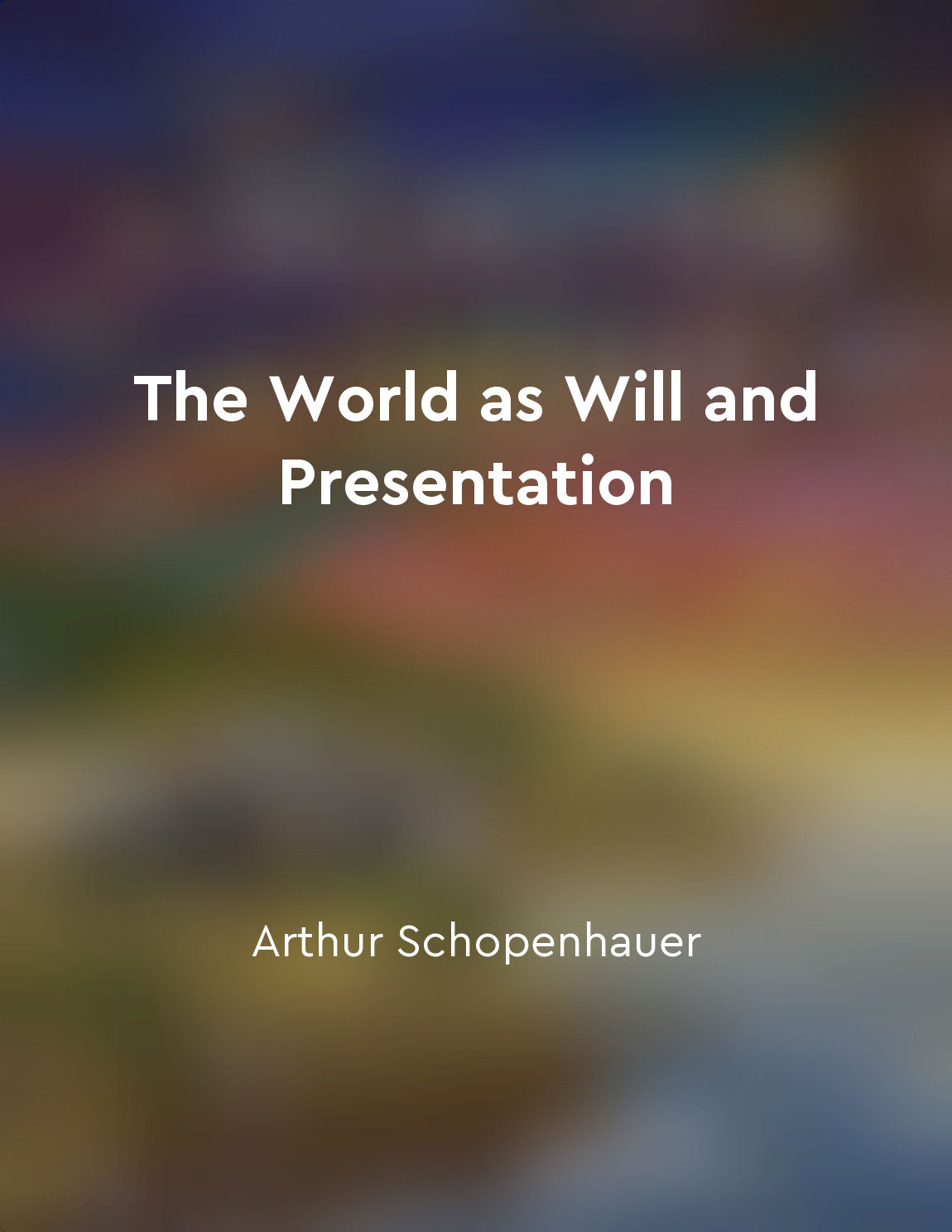Art allows us to transcend the limitations of the will from "summary" of The World as Will and Presentation by Arthur Schopenhauer,David Carus,Richard E. Aquila
Art, according to Schopenhauer, serves as a means for individuals to rise above the confines of their own will. The will, he argues, is the driving force behind all human actions and desires, dictating our impulses and motivations. This relentless force, however, can often lead to suffering and dissatisfaction, as it is insatiable and constantly seeking fulfillment. Through art, individuals are able to momentarily escape this endless cycle of desire and find solace in the aesthetic experience. Schopenhauer believes that art allows us to transcend the limitations of the will by providing a temporary reprieve from its demands. When we engage with a work of art, whether it be a painting, a piece of music, or a literary work, we are able to lose ourselves in the beauty and harmony of the aesthetic experience. In this state of contemplation, our focus shifts away from our individual desires and towards a more universal and timeless perspective. By immersing ourselves in art, we are able to connect with something greater than ourselves, a transcendent reality that exists beyond the confines of our own will. This experience of aesthetic contemplation allows us to momentarily escape the constraints of our individual existence and connect with a higher plane of consciousness. In this way, art serves as a pathway to a deeper understanding of the world and our place within it. Through the transformative power of art, we are able to break free from the limitations of the will and experience a sense of liberation and enlightenment. The aesthetic experience offers us a glimpse of a reality that is beyond the reach of our individual desires, allowing us to transcend the confines of our own egos and connect with a more profound and universal truth. In this way, art has the ability to elevate our consciousness and provide us with a glimpse of the sublime.Similar Posts
Loss and grief
Loss and grief are two constants in the human experience. We carry them with us, like heavy stones in our pockets, weighing us ...

The search for meaning in a seemingly chaotic world
In a world where chaos reigns supreme, the search for meaning becomes a daunting task. Arthur Schopenhauer and David Carus delv...
Artistic experiences can enhance communication skills
Artistic experiences have the power to unlock our potential for effective communication. When we engage with art, our brains ar...
Selfacceptance
Selfacceptance is a concept that often eludes us. It is the act of acknowledging who we are, with all our flaws and imperfectio...
Art can serve as a vehicle for selfexpression
Art, in its various forms, has a unique ability to act as a conduit for individuals to express their inner thoughts, emotions, ...

The insatiable nature of desire leads to suffering
The fundamental drive that propels human existence is the insatiable nature of desire, a force that pushes individuals to const...

Music represents the purest form of art
In the grand scheme of artistic expression, music stands out as the most profound and sublime form of communication. Through th...
